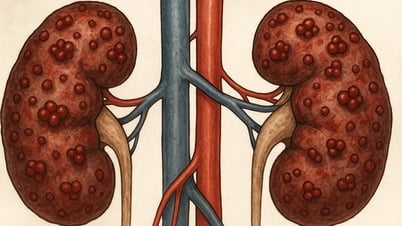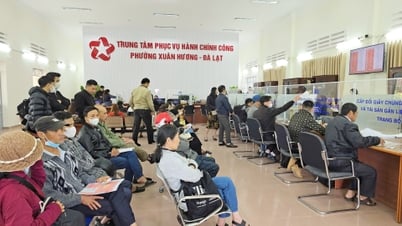The World Conference on Tobacco Control 2025 will be held in Dublin, Ireland from June 23 to 25, with the participation of hundreds of delegates from governments, health organizations, research institutes and civil society around the world. This is an annual event organized by the International Union Against Tuberculosis and Lung Disease (The Union), with the support of the World Health Organization, the Government of Ireland and Bloomberg Philanthropies.
At the conference, the World Health Organization and international partners emphasized the importance of increasing each country's financial resources to sustain tobacco control programs in the long term, especially in low- and middle-income countries. Although the cost of implementing tobacco control programs is not high, the benefits are huge in terms of public health and the economy .
In 2017, average spending on tobacco control was just $0.01 per person in middle-income countries, and $0.0048 per person in low-income countries. To address this, the Framework Convention on Tobacco Control calls on governments to increase domestic financial investment. This is seen as the foundation for maintaining sustainability, reducing the burden of disease, saving treatment costs and moving towards a healthy, developed society.

Within the framework of the thematic discussion on sustainable finance, Vietnam shared lessons learned on establishing and operating a stable financial mechanism for tobacco harm prevention and control.
Deputy Director of the Tobacco Harm Prevention Fund Phan Thi Hai emphasized the important role of strong political commitment from the Party, National Assembly and Government of Vietnam to the work of preventing and combating the harmful effects of tobacco and protecting people's health. Based on that foundation, Vietnam issued the Law on Tobacco Harm Prevention and established the Tobacco Harm Prevention Fund in 2013. The Fund is funded by compulsory contributions from enterprises manufacturing and importing tobacco products.
In addition to the financial mechanism, the Fund's management model is also highly appreciated for its multi-sectoral, transparent and evidence-based nature. The Fund is chaired by the Ministry of Health and has the participation of many other ministries and sectors, operating on the principle of funding based on output results.
Thanks to this approach, Vietnam has achieved many remarkable results: the smoking rate among adults decreased from 23.8% (2010) to 20.8% (2021); the rate of exposure to secondhand smoke decreased from 73.1% to 45.6%. Notably, at the end of 2024, the National Assembly passed Resolution 173/2024/QH15, officially banning e-cigarettes, heated tobacco products and new addictive products from 2025; at the June 2025 session, the National Assembly continued to pass the Law amending the Special Consumption Tax, establishing a mixed tax system and a roadmap for increasing tobacco taxes until 2031.
Experts at the conference affirmed that investing in tobacco control is one of the most effective health and economic strategies. In a period when public health resources are under great pressure, building a sustainable domestic financial mechanism is not only an urgent requirement, but also a prerequisite for protecting public health and sustainable development.
Source: https://nhandan.vn/tim-giai-phap-tai-chinh-ben-vung-de-duy-tri-cac-chuong-trinh-kiem-soat-thuoc-la-post889031.html






























































![[Infographic] Circular guiding the functions, tasks and powers of the provincial Department of Culture, Sports and Tourism and the commune-level Department of Culture and Social Affairs](https://vphoto.vietnam.vn/thumb/402x226/vietnam/resource/IMAGE/2025/6/29/877f24989bb946358f33a80e4a4f4ef5)



























Comment (0)